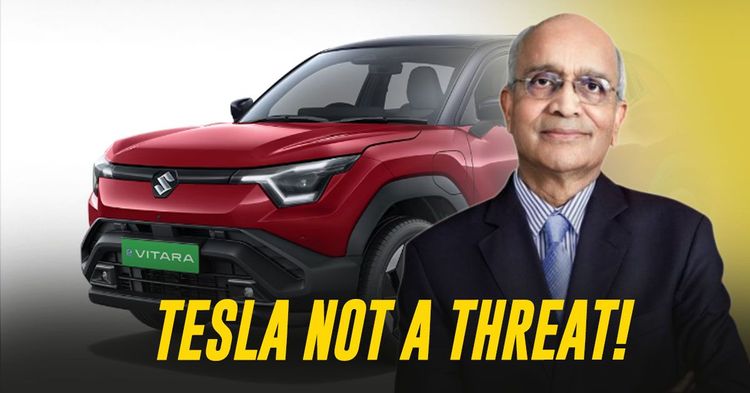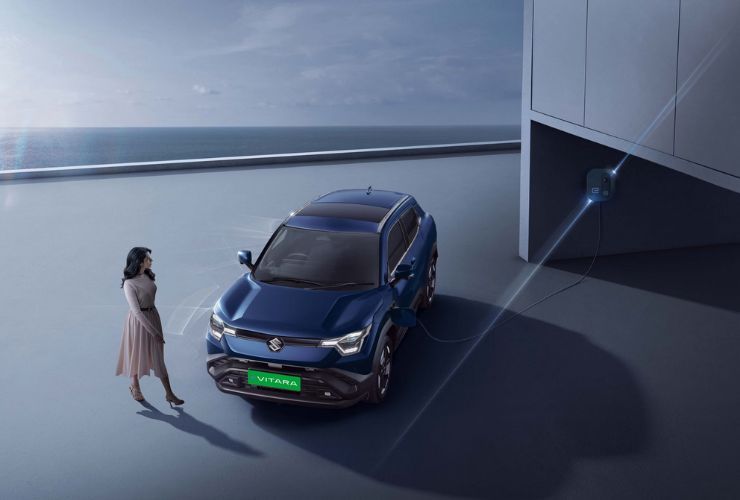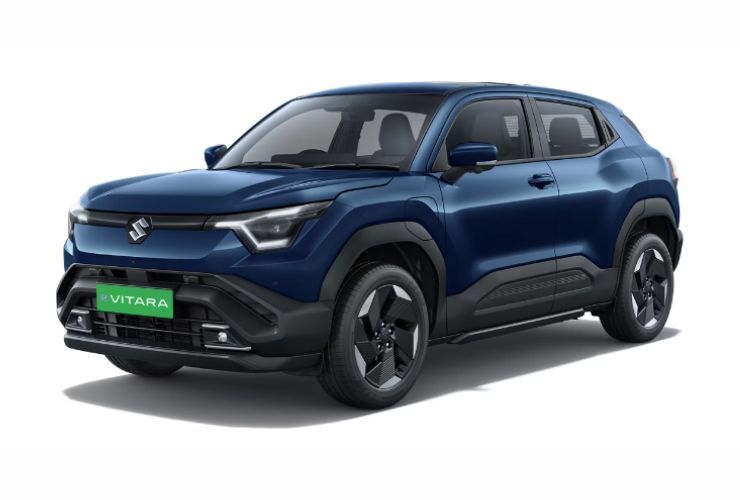Maruti Chairman On Tesla's India Entry: Not Worried About Duty Cut


Tesla is finally coming to India. This move is fueled by the Indian government’s decision to reduce import duties on electric vehicles (EVs). The auto industry has mixed reactions to this. Some expressed concerns over potential disruptions, while others chose to differ with their thoughts around the same. Maruti Suzuki’s Chairman, RC Bhargava, believes that the car manufacturers in India are more than capable of holding their ground against Tesla, even with the new slabs.

In a recent interview with Autocar Professional, Bhargava confidently stated that he has no concerns about Tesla’s entry into India. He emphasized that India’s automobile industry has the talent, expertise, and determination to stay competitive.
Acknowledging the government's decision to lower import duties on EVs, he remarked,
"I have no problem. These are government decisions… Indians have the skills, they have the capability of hard work, and they have the hunger for excellence. With all these things, nobody can stop us from getting more competitive."

Last year, the Indian government introduced an EV manufacturing policy aimed at attracting more global players. It proposed a drastic reduction in import duties—from the current 70-100% to just 15%. However, these benefits would only apply to manufacturers willing to invest at least ₹4,150 crore (approximately $500 million) and set up local production within three years.
They would also have to work towards attaining local production and increased localization. Despite this incentive, responses from foreign automakers have been lukewarm, leading the government to consider modifying some of the policy conditions.
Tesla has long criticized India’s high import duties. It now appears to be inching closer to starting India operations. Reports suggest that the company has started hiring for key roles, including store managers and customer relationship executives. It has reportedly finalized showroom spaces in major cities such as Delhi and Mumbai. This development comes shortly after a meeting between Prime Minister Narendra Modi and Tesla CEO Elon Musk earlier this month.
While Bhargava is optimistic, not everyone in the Indian auto industry shares his confidence. Some OEMs fear that the new EV policy might put local players at a disadvantage.
Indian automakers have invested heavily in building supply chains, developing local manufacturing capabilities, and been scaling production to serve both domestic and export markets. Industry insiders worry that if foreign brands like Tesla receive preferential treatment in the form of reduced import duties, it could disrupt the balance in the market.
Despite these concerns, Bhargava remains steadfast in his belief that Indian automakers are more than capable of competing on a global level. He pointed to Maruti Suzuki’s success in exporting vehicles to Japan—a market known for its stringent quality standards—as proof of India's manufacturing prowess.
The Jimny witnessed such high demand in Japan that Suzuki Motor Corporation had to temporarily suspend bookings. Bhargava believes that if India can sell cars to Japan, it should also be open to importing vehicles from foreign brands as well.
“It is a matter of reciprocity. Even if they manufacture elsewhere, they won't necessarily build a superior car. We have got too used to protectionism, and that mindset needs to change”
Tesla’s potential entry comes at a crucial time for the Indian EV market. Currently, electric vehicles account for just 2.5% of total passenger vehicle sales in India. However, this number is projected to grow significantly, reaching 15% by the end of the decade.
At present, Tata Motors and JSW MG Motor dominate the mass-market EV space, with Maruti Suzuki and Hyundai preparing to launch their own electric models soon. Mahindra & Mahindra, along with Tata Motors and JSW MG, also have aggressive EV expansion plans on the roll. Tesla will thus, not have an easy road ahead.
Hinting at the future of auto industry in India, Bhargava said:
“India should have conditions where we can manufacture as competitively as anybody else anywhere in the world. If we get the right kind of technologies, we will be more competitive than any country in the world,”
While Tesla’s entry is expected to shake up the Indian EV market, local automakers are not backing down. With growing investments in electric mobility, improved manufacturing capabilities, and a strong domestic market, they are preparing to take on the challenge head-on. Whether Tesla’s presence will disrupt or further accelerate the industry’s growth remains to be seen.